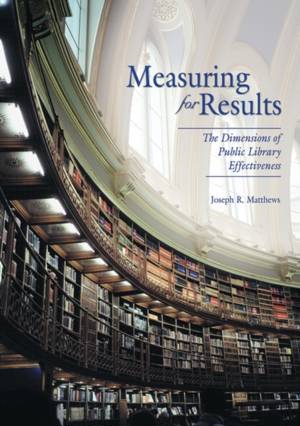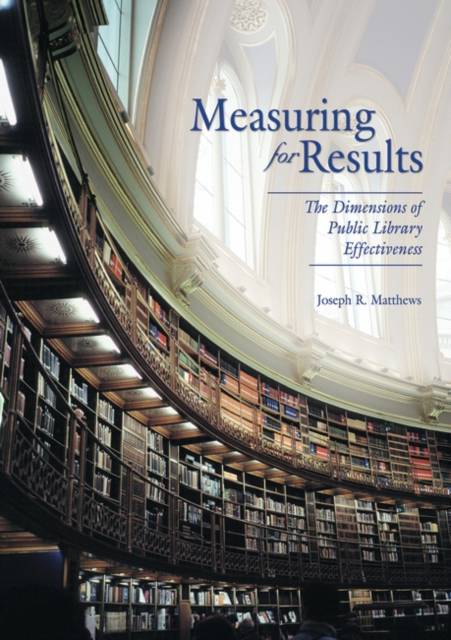
- Retrait gratuit dans votre magasin Club
- 7.000.000 titres dans notre catalogue
- Payer en toute sécurité
- Toujours un magasin près de chez vous
- Retrait gratuit dans votre magasin Club
- 7.000.0000 titres dans notre catalogue
- Payer en toute sécurité
- Toujours un magasin près de chez vous
Measuring for Results
The Dimensions of Public Library Effectiveness
Joseph Matthews
Livre broché | Anglais
84,95 €
+ 169 points
Description
Librarians have historically relied on the perceived value or goodness of the public library as a means to garner financial support. Yet it is now becoming apparent that public libraries must demonstrate, using an acceptable methodology, the economic value of the library and its services. A compendium of valuable information about the research and literature surrounding this issue of demonstration, this book reviews the various approaches that have been used in assessing the public library's value.
Matthews suggests methods for a library to develop better means of communicating with their funding decision-makers and other stakeholders. By analyzing input, process, and output measures, and combining these with measures of the economic and social benefits produced by the library, he offers a portfolio of approaches that enable today's librarian to both measure effectiveness and to communicate its value to its stakeholders--the communities it serves.Spécifications
Parties prenantes
- Auteur(s) :
- Editeur:
Contenu
- Nombre de pages :
- 240
- Langue:
- Anglais
Caractéristiques
- EAN:
- 9781591581000
- Date de parution :
- 30-11-03
- Format:
- Livre broché
- Format numérique:
- Trade paperback (VS)
- Dimensions :
- 156 mm x 234 mm
- Poids :
- 408 g

Les avis
Nous publions uniquement les avis qui respectent les conditions requises. Consultez nos conditions pour les avis.






